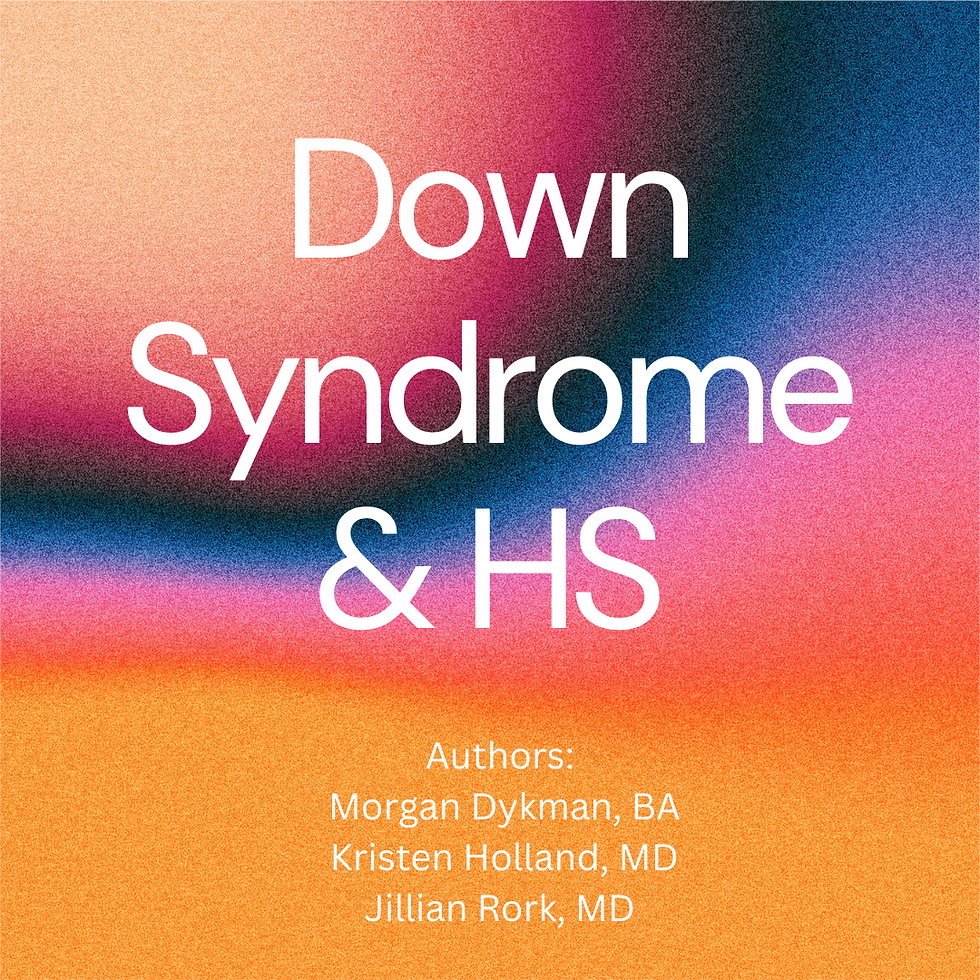Reducing Inflammation Without Antibiotics
- Denise Panter-Fixsen

- Nov 13, 2020
- 3 min read
Updated: Jul 9, 2021
Oftentimes antibiotics are being prescribed for anti-inflammatory purposes. We're offering other ways to reduce inflammation for Hidradenitis Suppurativa and help with pain without the use of antibiotics. Some of these options include the use of cold, natural options, anti-inflammatory foods and more, all of which will be discussed below.
Heat

Dry heat in the form of heating pads or other dry heat is not recommended for HS abscesses.
Heat causes inflammation, which equates to pain, especially with inflammatory conditions.
Continuous hot moist compresses packs are beneficial when an abscess is close to or ready to drain as it makes the top layer of the abscess soft and helps promote draining.
Cold
Cold wet compresses or ice reduces inflammation; less inflammation equates to less pain and better inflammation control.
Cold can also help avoid the development of cellulitis which can be caused by a skin injury or chronic inflammation.
Be sure to place a barrier (washcloth, towel, etc.) between your abscess and the ice pack so you do not burn your skin with the ice pack.
Pharmaceutical Options
Pharmaceutical options, both over the counter and prescription, can be beneficial for controlling inflammation and pain associated with Hidradenitis Suppurativa. There may be unpleasant GI side effects with these options, some of which can cause permanent damage, especially if used daily and the long-term.
Over-the-counter options:
Ibuprofen (Advil, Motrin IB)
NSAIDs including Naproxen, Aleve, ibuprofen, Motrin, or Advil
Natural anti-inflammation options:
Extra Virgin Olive Oil: One teaspoon 2 to 3 times per day or 2 T/day. This is equivalent to an adult dose of ibuprofen
Green tea
Cinnamon
Basil
Ginger
Curcumin (poorly absorbed alone and should be taken with black pepper)
Willow bark
Devil’s claw root
Fish Oil
Alpha-Lipoic Acid
Resveratrol
Spirulina
B Vitamins
Vitamin C
Vitamin D
Vitamin E
Vitamin K
Tart cherry
Grapefruit Seed extract (also can act as a natural antibiotic)
Oregano (also can act as a natural antibiotic)
Goldenseal (also can act as a natural antibiotic)
Garlic (also can act as a natural antibiotic)
Honey (can also act as a natural antibiotic)
Echinacea (can also act as a natural antibiotic)
Extra virgin olive oil (can also act as a natural antibiotic)
Berberine (can also act as a natural antibiotic)
The natural antibiotics may be great for help those who suffer from chronic infections. These are not replacements for emergency situations where prescription antibiotic intervention is needed and are not a replacement for medical help.
Tips for taking supplements:
Do not overdo it when it comes to supplements, you do not want to become toxic with any mineral or vitamin.
Ensure you take breaks from the supplements.
If you are getting certain vitamins and minerals from your food and diet you do not need a supplement.
Follow the dosage instructions.
Buy from a reputable manufacturer.
Check with your doctor first if you have a medical condition or take medication before starting supplements.
Anti-inflammatory foods:
Tomatoes
Olive oil
Green leafy vegetables, such as spinach, kale, and collards
Nuts like almonds and walnuts
Fatty fish like salmon, mackerel, tuna, and sardines
Fruits such as strawberries, blueberries, cherries, and oranges
Find anti-inflammatory recipes here.
Good Oils:
If you haven’t started cooking with olive oil yet, now’s the time! It’s incomparably rich in oleic acid, an omega-9 fatty acid. Extra virgin olive oil can greatly help minimize inflammation. Ditch vegetable oil for healthier options like olive, grape seed, coconut oil, and avocado oils.
Avoid as much sugar as possible, especially refined sugar. Also avoid or limit your caffeine intake. Caffeine can cause insulin spikes and increased blood sugar which causes inflammation.
Related Articles:
Content in this article is not intended to be a substitute for professional medical advice, diagnosis, or treatment. Always seek the advice of your physician or other qualified health provider with any questions you may have regarding a medical condition. Never disregard professional medical advice or delay seeking treatment because of something you have read on this website.
Written by Denise Panter-Fixsen
Edited by Brindley Kons



